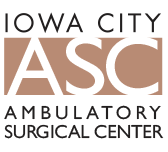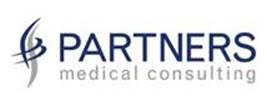Functional Endoscopic Sinus Surgey
Your sinuses perform essential functions for your body and your immune system. Primarily, your sinuses produce a healthy and necessary mucus that helps protect the nose and nasal passageways. However, when your sinuses are unable to properly vent and drain, painful infections can develop as a result.
That’s why chronic sinus infections may be an indication that there is a structural problem with your nose or nasal passageways. A Functional Endoscopic Sinus Surgery (or FESS) is a minimally invasive procedure that can dramatically improve the drainage and ventilation of your sinuses without significant incisions. In this way, FESS provides a sinus solution with an easier recovery and less discomfort than other surgical options. Check out additional ENT procedures that Iowa City Ambulatory Surgical Center performs.
How is Functional Endoscopic Sinus Surgery Performed?
Function endoscopic sinus surgery can be performed under general or local anesthesia, depending on your preference and medical requirements. When performed under local anesthesia, the procedure is typically not uncomfortable, as patients are given a sedative and some music to listen to.
The functional endoscopic sinus surgery procedure is typically performed on an outpatient basis, meaning patients will be able to return home the same day as their surgery. In most cases, no hospital stay is required, which means some patients are able to undergo FESS in an ambulatory surgery center setting.
What Happens During Surgery
During the FESS procedure, your surgeon will:
- Insert a tiny, telescoping fiber-optic camera into your nose. This allows the surgeon to see disease, obstructions, or tissue that is causing your repeated infections.
- The surgeon will use small, targeted incisions to clear away obstructions, including bone, cartilage, or other tissue.
- In some cases, the surgeon may also clean out infections or signs of disease.
- Once the sinus passages have been sufficiently opened, the surgeon will suture up any incisions and remove all instruments.
- You will then be taken to a recovery area and observed while the effects of the anesthesia wear off.
Who is a Good Candidate for FESS?
Many patients ask: how do I know if I need sinus surgery? And it’s a good question. FESS procedures are used primarily for patients who experience difficulty breathing because of a deviated septum or who experience frequent and repeated sinus infections.
In general, patients who are good candidates for functional endoscopic sinus surgery will have:
- Experienced difficulty breathing because of the structure of their sinus passageways.
- Experienced repeated sinus infections.
- Had limited success treating sinus infections with medication.
- Structural presentations in the sinuses that prevent drainage and ventilation.
In most cases, your surgeon will run a series of diagnostics to ensure you are a good candidate for FESS. This may include X-Rays or CT scans, as well as gathering your medical history. You should be generally healthy enough to undergo surgery to be a good candidate for FESS.
There are several different techniques that can be performed with FESS. Your ENT will discuss which procedure type will be the best one for you and your health.
Functional Endoscopic Sinus Surgery Post-Surgery Care
Your ENT surgeon will provide you with specific and individualized post-operative instructions. Because FESS is minimally invasive, the discomfort and pain experienced after this procedure are relatively minimal when compared to other possible sinus surgeries.
Still, your ENT will provide you with medication that will help you manage pain and keep infections at bay. In general, during your recovery you will:
- Possibly experience some blood nasal discharge.
- Want to avoid blowing your nose for at least four to seven days.
- Schedule a follow-up appointment with your ENT. Usually, this appointment takes place sometime within the first six days following your procedure (most often on the first and sixth-day post-op).
During recovery, your ENT may also remove any persistent scar tissue or inflammation. In general, complications are rare, but they do occur. You should talk to your ENT about the possible risks associated with FESS.
FESS Leads to Better Breathing
Once recovery is complete, you’ll likely notice that it’s a little easier to breathe! This procedure will also help limit sinus infections and minimize symptoms. Most patients who successfully go through the procedure notice a 90% improvement in symptoms.
If you want to know more about FESS and discover how you might be able to have your procedure performed in an ambulatory surgery center, contact your ENT today to schedule an appointment. If you would like to talk to one of our surgeons about your next ENT procedure, contact us!
Take The Stress Out Of Surgery
At Iowa City ASC, our team takes great care to help you reduce your stress before and after your surgery. By answering your questions thoughtfully and providing a variety of tips to make you feel at ease with your procedure, we hope to put your mind to rest and make your experience as comfortable as possible.











